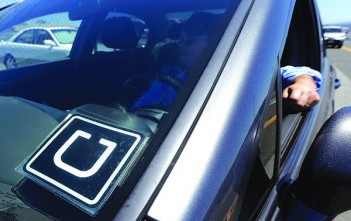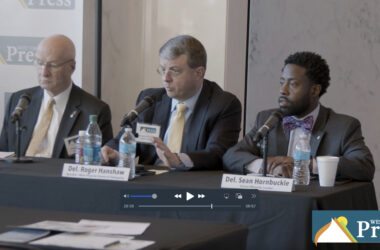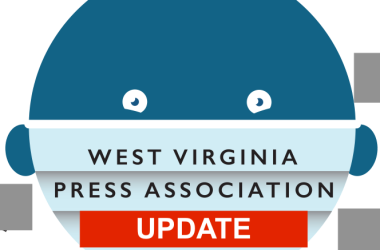
Uber driver Karim Amrani sits in his car parked near the San Francisco International Airport parking area.
WHEELING, W.Va. — Legislation passed in February will permit ride-share services, such as Uber, to operate within West Virginia, but what cities and towns Uber decides to conduct its business in depends on interest generated by potential users and work-for-hire employees.
Annaliese Rosenthal, a general manager with Uber, said the company measures this interest through its mobile app, which collects location data, and offers hard numbers to illustrate a possible market’s size. She said Uber will likely open shop in larger cities such as Morgantown, Huntington and Charleston initially, but added there’s plenty of potential in smaller West Virginia markets, including Wheeling, because they offer fewer transportation options.
Uber connects work-for-hire drivers with riders through its app. It’s essentially a loosely defined taxi service for which anyone with a car can flexibly work. Riders pay their drivers electronically.
The legislation takes effect July 1. The bill was originally introduced in 2015, yet was throttled because it included a provision to protect lesbian, gay, bisexual and transgender riders from discrimination. The new version lacks this, but Uber has its own series of discrimination policies which it will enforce in West Virginia, effectively providing similar protections.
Rosenthal said the policy planned for West Virginia will be the same one it uses elsewhere. The company is in more than 150 American cities, as well as international locations in Europe, East Asia and Australia.
Rosenthal oversees some smaller markets for the company, including those in nearby Virginia. Though the perception of Uber may be that it’s designed for larger metropoleis, she said small towns that lack efficient public transit will benefit, especially late at night when people tend to drive home drunk.
A 2015 study conducted by Mothers Against Drunk Driving and Uber found that in Pittsburgh at about 2 a.m., when most bars close, the company sees a spike in business. The study surveyed other cities, finding that a disproportionate amount of ride requests came between the hours of 10 p.m. and 3 a.m. within 50 meters of a bar.
Wheeling does have the Ohio Valley and Eastern Ohio Regional Transportation authorities for daytime bus service, but most of its routes shut off by 6 p.m. on weekdays and weekends.
There’s also potential in the company providing flexible, part-time employment in an area with limited options. Uber’s hiring policy is a source of controversy, though. The company has been subjected to numerous lawsuits and protests because some Uber drivers take issue with the company’s reliance on work-for-hire labor, while it profits.
Uber’s estimated worth is $62.5 billion.
Though the assumed audience for Uber is Millennials, Wheeling Jesuit University senior Jacob Plichta said he’s somewhat apprehensive about the service. From Pittsburgh, he’s familiar with it, but said he’d rather use a regular cab service to support drivers whose paychecks entirely depend on his business.
He said he could see how Uber’s practices may perpetuate a trend of work-for-hire, freelance employment in other industries, limiting full-time opportunities.
That said, his friends attending college in other cities use and enjoy the service. He said he could see it being popular with WJU students who commute to campus.
West Liberty University senior Megan Bobes frequently used Uber while interning in Washington, D.C. over the summer. She found it easily accessible and affordable, as well as convenient.
She grew up in Elkins and echoed Rosenthal’s points regarding smaller markets. She said there’s more reason for Uber in a town with zero transportation options.
As for the service being perceived as a Millennial concern, she said Uber doesn’t have to be limited to young people. Most everyone has somewhere to go.
To read more from The Intelligencer/Wheeling News-Register, subscribe here.






